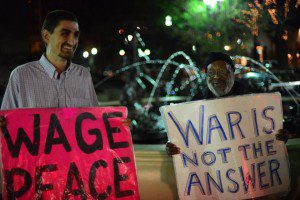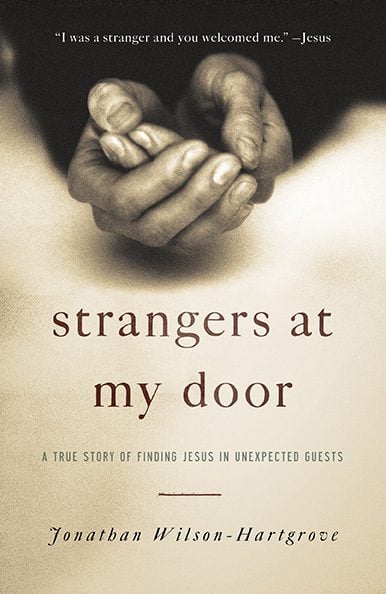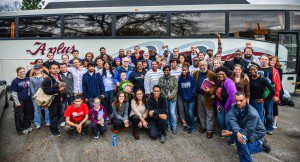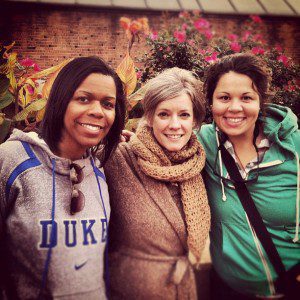
While the headline news this weekend was all about the current presidential election and the upcoming debates, Leah and I spent the weekend down in Southwest Georgia, celebrating Clarence Jordan–someone who didn’t make the news very much during his own lifetime, but whose contribution was considerably more important than most people recognize.
At least, that’s what former President Jimmy Carter said in his opening remarks on Friday evening. Before he was “involuntarily retired” from his work at the White House, Carter noted that he had the opportunity to meet some of the truly great men of the world. He mentioned Anwar Sadat and Nelson Mandela. But right up there with them, President Carter said, he would count Clarence Jordan, the founder of Koinonia Farm in rural Georgia.
We spent the weekend hearing stories of people who had been inspired by Koinonia’s inter-racialism to keep going during the hard days of the Civil Rights Movement. We met hundreds of people for whom the story of Jesus came alive when they first read Jordan’s The Cotton Patch Gospel or saw the stage performance and musical written by Tom Key and Harry Chapin. (Tom performed his one-man version on Friday night, and Leah and I laughed so hard we cried. We were sitting directly behind the Carters’ Secret Service agents who never so much as cracked a smile. I don’t know how those guys do it.)
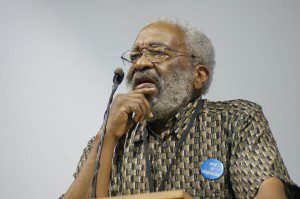
A highlight of the weekend for me was watching as Dr. Vincent Harding, one of Martin Luther King’s close friends and co-workers through the late 50’s and 1960’s, led us in a democratic conversation about both the memories of what we have suffered in this country and the genuine hope of a “demonstration plot” that has shown us how the way things are is not the way things have to be. Fifty years ago, Harding noted, when he first visited Koinonia Farm, they told him, “Whatever you do, don’t stop to ask anyone around here for directions.” But things have changed in Americus. Jordan’s name is written in the sidewalk on Main Street–right there beside some of the folks who boycotted the farm back in the 1950’s.
I came away from this weekend feeling far more hopeful about the prospects for American Christianity than I do after attending most church conferences. And I certainly feel more hopeful about the prospects for our country than I do after watching the campaign ads. Because as bad as things may seem, the seeds of our future have already been sown in our radical past. We need to take time to remember the stories and pass them on. Here’s a little video that our friend Andy Anderson helped us make out on the farm this weekend. I hope it’s a reminder to you that, as we sang with Dr. Harding to close out the Clarence Jordan Symposium, “We are building up a new world… Builders must be strong.”


